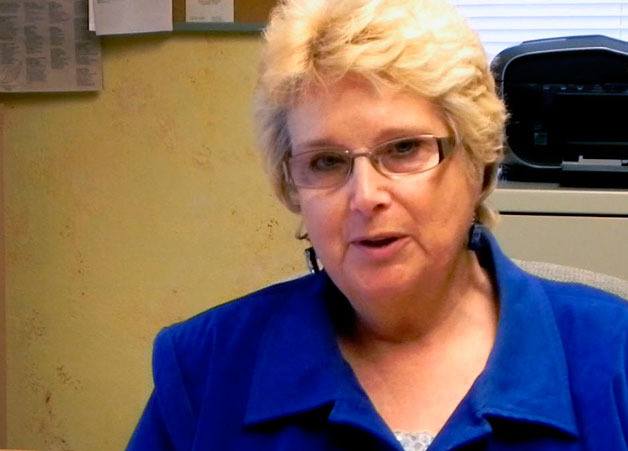One organization wants to challenge some South Enders to remove their rose-colored glasses.
“There are a lot of people who live in their own little world and who are just unaware,” said Rosemary Martin, executive director of Helping Hand of South Whidbey.
Martin and her fellow volunteer staff recently announced the “Warmth and Shelter” fund drive for its South Whidbey clients who will seek help with heat, utilities, rent and mortgage payments in the coming winter.
“Last year, we ran out of money in October,” Martin said. “We want to prevent that from happening this year. This campaign is about awareness.”
Helping Hand of South Whidbey is a 30-year-old nonprofit charity staffed by a coalition of South Whidbey Christian churches, and sees this fund drive as a way to get ahead of the curve of proposed federal budget cuts. The charity operated on a $70,000 budget in 2010, (with 89 percent of expended funds going directly to help clients), and is hoping to increase that amount to $100,000 in 2011 through increased community donations and foundation grants.
“We’ve just come out of a long, cold winter, and if this next winter is anything like the last one, we have real concerns about people in our community who will be without means to heat their homes or even stay in their rentals,” Martin said.
One family with four young children, whose father lost his job this past December, slept in their clothes to stay warm for three weeks before finally seeking assistance at Helping Hand to fill up their propane tank.
Although South Whidbey is noted for its excellent support of the Good Cheer Food Bank, Whidbey Island Nourishes and organizations which help to feed the hungry, people’s needs go beyond the table, Martin said.
“Good Cheer has done such a good job. But if somebody doesn’t have a home to cook the food in, or the power to cook it, or if they are still living outside in the woods or couch surfing, food doesn’t really solve the problem,” she said.
What concerns Martin most is a proposed 50-percent reduction in the federal Low Income Heat And Energy Program, which would cut approximately $250,000 to Island County residents. This money is disbursed through the Opportunity Council of Island County, a federally funded community action program to which Helping Hand refers clients.
When the Opportunity Council runs out of funds or a client does not meet their funding criteria, Helping Hand is often able to help with crisis funding of vital services.
Of the 869 individuals who called or came to Helping Hand’s office in Langley, 41 percent involved emergency heating and utility bills and 42 percent involved overdue rent or mortgage payments. Households representing 353 adults and 222 children had emergency heating, utility, rent and mortgage bills paid directly to utility companies and landlords on their behalf.
“President Obama suggested a 50 percent cut, but Congress might cut more,” Martin said.
“We think Congress is out of touch; it’s so far out of their radar. It’s hard for them to believe that an affluent area like Langley could have this problem. You have to look beyond the big houses on the water,” she added.
Getting Congress in touch with the problem starts at home. Martin believes there a lot of people on South Whidbey who mean well, but who are simply unaware of the reality.
“I sort of see this campaign as a way to bring people around and just talk to them. My goal is to try and educate people and to talk to them about my own personal unawareness about how deep the problem was until I came here to volunteer at Helping Hand,” she said.
So far, the “Warmth and Shelter” drive raised about $25,000. But consider that in the first six months of 2011 Helping Hand gave out about $20,000 in grants, and that winter is on the horizon, along with government cuts, and the need is greater than ever.
“Clients get in this circle where they can’t afford to live in a new house, the house they are in is not insulated and that drives the power bills up,” Martin said. “It’s a treadmill and I feel so bad for them.”
She may feel bad, but she also said that although the folks working at Helping Hand are not professionals, they do the best they can with what they have to offer.
Clients are allowed a $400 maximum grant each year, after they have gone to the Opportunity Council first.
“We are fortunate that South Whidbey has various groups working together to help families and individuals in crisis,” Martin said. “But most people who live on South Whidbey are not even aware of some of the dire situations our neighbors are facing.”
Though the charity has often helped young single mothers and elderly individuals who have run low on resources, last year’s statistics showed a surprising upturn in middle-aged individuals, many of whom lost jobs and exhausted their unemployment benefits.
Helping Hand launched a new website at www.helpinghandofsouthwhidbey.org, which informs the public about how the charity helps local residents, plus offers information for new clients seeking assistance.
Helping Hand is part of South Whidbey’s HELP Network and refers clients to other area nonprofits such as Good Cheer and Friends of Friends Medical Support Fund or services such as woodcutting ministries or CMA’s Soup Kitchen.
“I have to admit, before I came to Helping Hand, I didn’t know about this problem because I didn’t experience it in my own life,” Martin said.
“I’m hoping this campaign will bring people out to ask the questions.”



